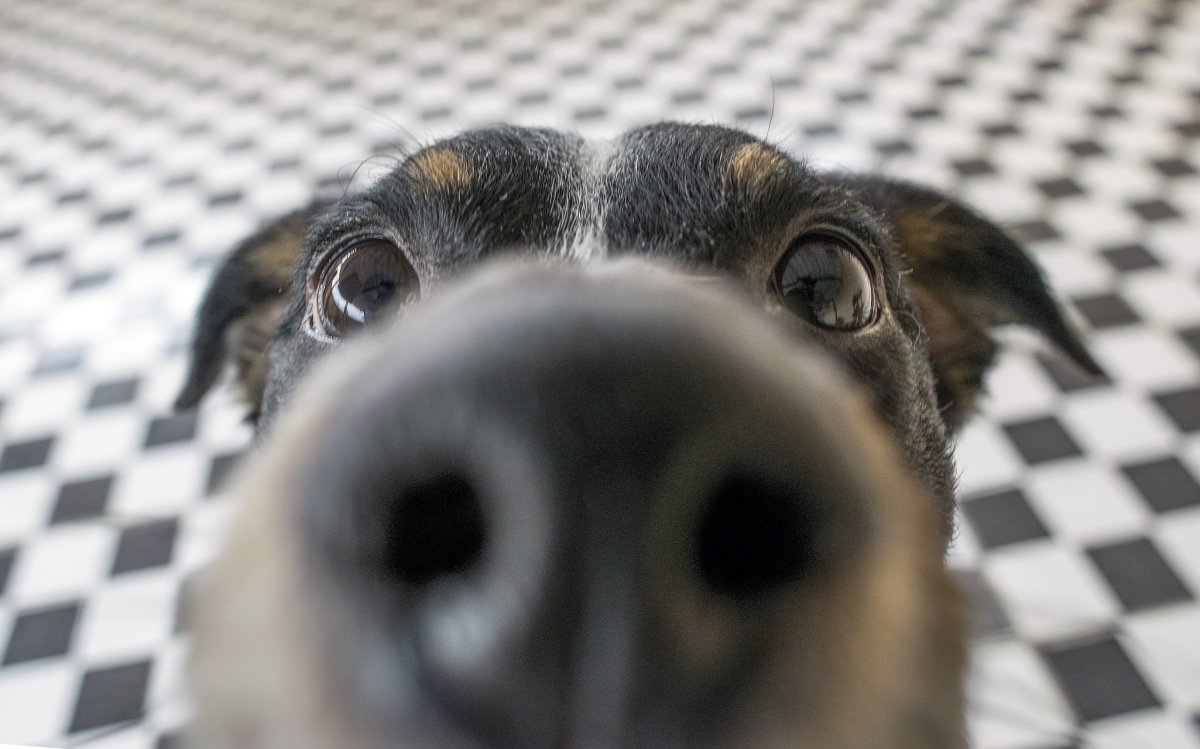Scientists may have revealed a way to improve your dogs behavior—by training them to pick up scents.
The research from Aberystwyth University, based in Wales in the United Kingdom, found that dogs that had been specifically trained to pick up certain scents had a better ability to complete tasks. They also had better cognitive function and ability to control themselves, the study published Monday in the journal Animals, found.
All dog owners usually train their pets to some degree, whether to carry out simple acts such as sitting down, or more complex tricks. But dogs can also be trained to recognize certain scents. Before now, the effect this had on the pets cognitive function was unclear.
"We had predicted that scent work would improve a dog's ability to perform well on these tasks that require inhibitory control," Sarah Dalesman from the Department of Life Sciences at Aberystwyth University, who who co-supervised the project, told Newsweek. "Scent work requires dogs to work independently of their handler. When they are being tested only the dog knows where the scent is, so the handler has to rely on them to indicate where the scent is. The dog also needs to remain focused on the task and not get distracted by other scents in their environment, even an exciting scent like food."
To compare how each dog responded depending on how they had been trained, Emma Stoker, owner of dog training company, Puppy Plus in Newtown, Wales, and researchers from Aberystwyth University tested a group of dogs with two tasks designed to test impulse control.
One was the "detour task" where the dog had to move around a transparent barrier to get a treat. The other task was the "A not B task," where dogs had to choose which pot a treat was lying under.
Researchers discovered that the dogs who were trained to recognize scents performed significantly better than those who were not scent trained.
"Scent work is a fantastic activity for dogs to do with their owners. It is suitable for all ages from young puppies to elderly dogs, and a really easy activity to practice at home as you don't need lots of equipment. Even hiding some of the dog's normal food so they have to sniff it out can provide them with important mental stimulation," Dalesman said.

She added: "Our results do indicate that scent work can help with a dog's self-control, so there may be benefits in improving their behavior more generally. But we need to do more research to determine if this is the case."
Before this research, studies had only compared highly-trained working dogs, like those used for professional search or rescue operations, with untrained dogs, meaning the distinction between normal pets was not known.
Dogs with inhibitory control has previously been found to improve a dogs problem-solving skills, the study reported. It can also hold owners in good stead for preventing unwanted behaviors, as poor impulse control is thought to be the main driver of most.
"It's also worth exploring different training activities with your dog and finding out what you and your dog really enjoy doing together. My own dog enjoys scent work, but he really loves doing dog agility, so at the moment we are doing more agility training. It's fantastic to also have the scent training though, as he'll still be able to do this when he gets too old for dog agility which is a physically demanding sport," Dalesman said.
"Whilst the current study indicates a positive effect of scent work on inhibitory control, we don't know whether it would improve a dog's ability in other cognitive tasks such as puzzle solving, so that's one avenue we hope to study in the future. We are also hoping to conduct a longer-term study where we can track how a dog's cognitive ability changes over time with different types of training. A lot of previous work has focused on how highly trained working and sporting dogs differ from pet dogs, but we're more interested in the effects that pet dog training has on dog behavior."
Do you have a tip on a science story that Newsweek should be covering? Do you have a question about dogs? Let us know via science@newsweek.com.
Uncommon Knowledge
Newsweek is committed to challenging conventional wisdom and finding connections in the search for common ground.
Newsweek is committed to challenging conventional wisdom and finding connections in the search for common ground.
About the writer
Robyn White is a Newsweek Nature Reporter based in London, UK. Her focus is reporting on wildlife, science and the ... Read more
To read how Newsweek uses AI as a newsroom tool, Click here.






